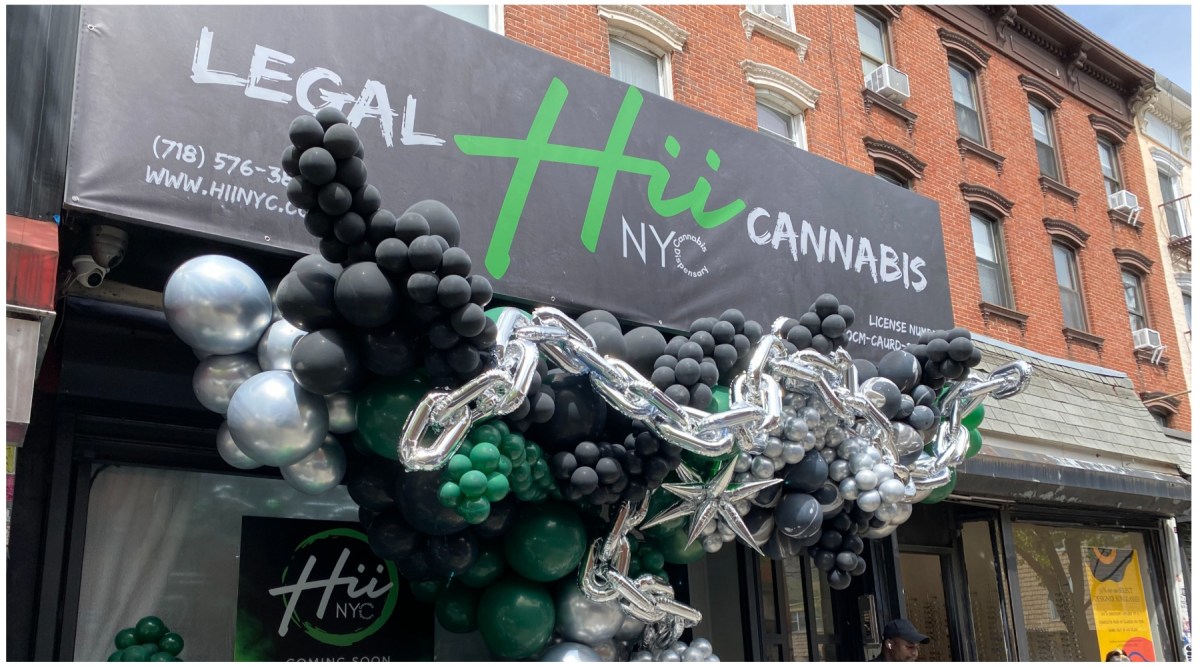
Brooklyn District Attorney Kenneth Thompson took a bold step in reshaping drug policies in his borough Tuesday after he announced his office will no longer prosecute most first-time offenders arrested for possessing small amounts of pot.
Thompson followed through with his campaign promise to change the office’s policy on low-level drug arrests, contending the thousands of cases created an unnecessary legal burden.
Last year, the Brooklyn DA office processed 8,500 misdemeanor marijuana possession cases. The majority of those charged, he noted, involved minorities, and more than two-thirds of the cases were dismissed.
“The processing of these cases exacts a cost on the criminal justice system and takes a toll on the individual,” he said in a statement. “Given that these cases are ultimately — and predictably — dismissed, the burdens that they pose on the system and the individual are difficult to justify.”
Under the new policy, those arrested for carrying 25 grams or less of marijuana and have a minimal criminal background will have their cases dismissed. Exceptions will be made if the suspect is arrested for openly smoking the substance in public, or if their criminal background shows they will act in a dangerous manner while under the influence such as a domestic violence case.
Those arrested who are 16 or 17 will be directed to a special program under the adolescent court.
Mayor Bill de Blasio offices didn’t return messages for comment. A spokesman for the Queens district attorney’s office declined to comment while a representative for Manhattan DA Cy Vance’s office said he has urged Albany to loosen the marijuana laws in the past.
Police commissioner Bill Bratton said he respected Thompson’s decision but wouldn’t change any police procedures when it comes to marijuana arrests.
“In order to be effective, our police officers must enforce the laws of the state of New York uniformly throughout all five boroughs of the city,” he said in a statement.
Legal experts and pot legalization advocates, however, said the DA’s actions will start a ripple effect that could lead to further decriminalization in the state.
Gabriel Sayegh, state director for the Drug Policy Alliance, said the move was a long-time coming since the majority of Americans approve legalizing marijuana. A May Quinnipiac University poll found that 51% of New Yorkers support decriminalizing small amounts of pot for personal use.
“Thompson ran on this issue and now he’s following through. He is consistent with public opinion,” he said.
Some New Yorkers said Thompson was making the right move.
“These petty criminal records are becoming a big problem for our youth, hopefully this would encourage someone to turn their life around and make better choices,” said Ayodele Akingbade, 31, a postal worker from Harlem.
Kathleen Scott, a 56-year-old administrative accountant from Brooklyn had similar feelings about the decision.
“I like that idea,” she said. “Because sometimes youthful indiscretions have long-term harmful effects and that shouldn’t be the case.”
James Cohen, professor at Fordham Law School, predicted that the other DA offices throughout the state will follow suit when they realize how much time, energy and most importantly money they are wasting by processing these first time cases.
“You will find that first-time marijuana arrests are … simply dismissed,” he said. “De facto, the courts have said this is ridiculous. It’s better to have it out in the open.”
(With Zoë Lake)

















